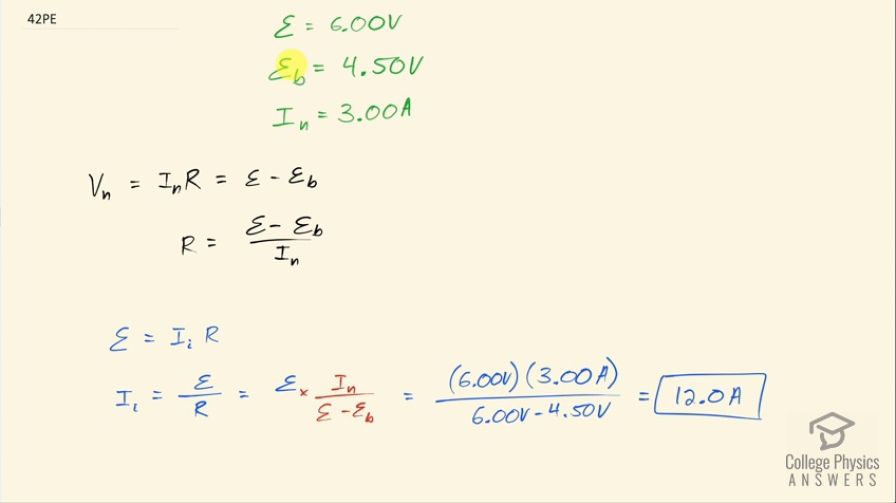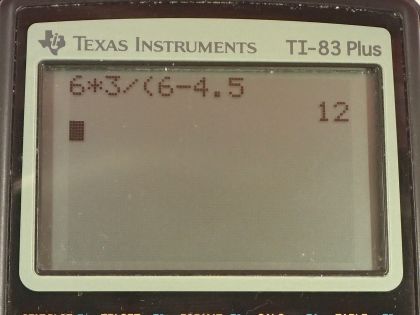Question
The motor in a toy car operates on 6.00 V, developing a 4.50 V back emf at normal speed. If it draws 3.00 A at normal speed, what current does it draw when starting?
Final Answer
Solution video
OpenStax College Physics for AP® Courses, Chapter 23, Problem 42 (Problems & Exercises)

vote with a rating of
votes with an average rating of
.
Calculator Screenshots
Video Transcript
This is College Physics Answers with Shaun Dychko. A toy car is operated by a 6.00 volt battery and when it's running at its normal speed, it has a back emf of 4.50 volts and a current of 3.00 amps and the question is when it's first starting, what current does it draw? So we need to know what the resistance of the motor is inside this car and so we'll take the normal voltage as the normal current times resistance and this normal voltage is the difference between the source emf provided by the battery and the back emf that it generates when it's running at normal speed and we'll solve this for R by dividing both sides by the current when operating at normal speed and so resistance is source emf minus back emf divided by the normal current. Now the source emf is going to equal the initial current times the resistance because in this case, the total voltage in the circuit will be just that of the battery— there's no back emf when it's initially turned on— so we can solve this for I initial by dividing both sides by this resistance and so we have the initial current then is the source emf divided by the resistance and we have a formula for resistance here and since we are dividing by this fraction, I am going to instead multiply by its reciprocal so I am multiplying by the normal current divided by the difference between the source and the back emf and so we have 6.00 volts times 3.00 amps over 6.00 volts minus 4.50 volts and that is 12.0 amps of current drawn initially when the car is first turned on.
